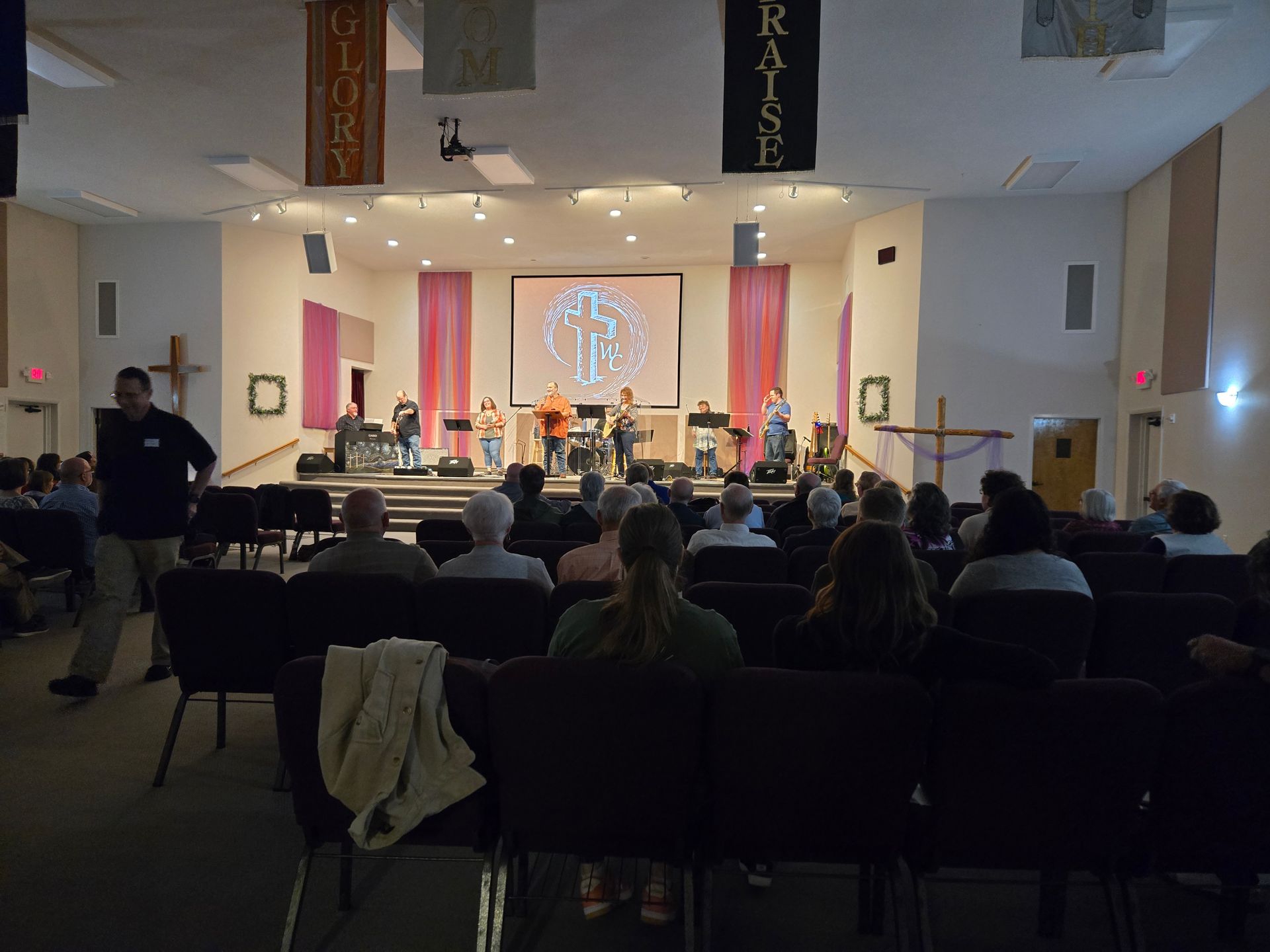The Dialectic of Peace
Today's post comes from Brethren Contemplative. Jason Barnhart blogs regularly on faith, Brethrenism and culture at Brethren Contemplative.
Suddenly a great company of the heavenly host appeared with the angel, praising God and saying,
“Glory to God in the highest heaven,
and on earth peace to those on whom his favor rests.”
-Luke 2:13-14, NIV
Peace. We love the word. We adore the concept. But, if we’re honest, much like those shepherds from this well known Christmas story, we live with a lot of fear and anxiety When confronted with reality, peace is the last thing on our minds.
Peace names anxiety in each of us. Our violent world would have us believe that peace is mere naïveté. In some ways the world is correct. There is a reason that Jesus says we must become like little children to enter the kingdom of God (Mt. 18:2-4). The extraordinary implications of the angel's proclamation to the shepherds are that a universal reality was being localized to the least of these in Greco-Roman society. The Christmas story begins not with a great proclamation in Rome but with a song in a remote field to day laborers.
The challenge with peace is that when we think too universal (like world peace), it becomes merely an idea or theory. For peace to make sense, it must be embodied by a people who stick together long enough to realize that they’re not the center of the universe. Fear and anxiety, mind you, have a tendency to make our world small. Our gospel story is one of great fear as the night sky became like the day and, simultaneously, heaven opening up proclaiming, “Peace.”
The first Christian community was established that fateful night on that hillside. Shepherds encountered the transcendent other. Yahweh (transcendent one) was born to them (and us) in Jesus (immanent one). The angels named a dialectic of peace in that the same God was both transcendent and immanent. This was made known to this “earthy” community outside Bethlehem.
Peace needs a community to make it tangible and real. The first act of communal discernment took place as the shepherds declared, “Let’s go to Bethlehem and see this thing that has happened, which the Lord has told us about” (v. 15b). Peace enables the church to be the church and to be an alternative to the world. With the angels, we join the mission of “peace to those on whom [God’s] favor rests.” Through the birth of Jesus, God has chosen the world.
The birth of this peaceful one named anxiety in the ancient world. Peace is usually thought as the resolution of a conflict rather than its encourager. But let’s not forget that Jesus’ birth brought major conflict. If the Christ child is king, then Herod is not. That ragamuffin group of shepherds had no idea that their journey to Bethlehem was the first counter-cultural act of the Church.
The irony of the modern world is that the primary obstacle to peace, for many, if we're honest, is that it seems boring. No one rushes to the movies to watch a movie on peace. Peace just isn’t interesting. We like the struggle for peace, but the idea that peace might be achieved scares us to death. We associate peace with rest and fear that rest without conflict is just another name for death.
The phrase “the peace of Christ” throughout the church’s history has been subtle and profound. Through the exchanging of the peace of Christ, we give concrete expression to our sincere desire to love our neighbor. How could we hate our neighbor if we wish them divine peace? And so, this exchange of peace becomes a beautiful expression of supernatural love for one another, which opens our hearts to receive more worthily and fruitfully the grace of God. We extend the angelic invocation of “peace to those on whom [God’s] favor rests.”
With those shepherds outside Bethlehem, we realize that peace is the quality of life and the practices of a community that knows itself as a forgiven people. The transcendent peace of the world is also the immanent warmth of a tiny infant—the intersection of the dialectic reality of God with an earthy home.
We call this community the church. It’s not a place you show up to on Sunday morning, a program you get involved with, or even a team on which you serve. It is a community of those we share life with—those in whom we experience the peace of Christ. It is a people with whom we witness the Christ child.
Church is a people who share a common history of being chosen and forgiven. Church is a people who fall woefully short and look at the other and say, “peace on you because God’s favor rests on you.” This community then models that peace to the watching world.
This is huge if we’re going to be a community of peace in a world at war because we must confront the false peace of the world which is built more on power than truth. When this false peace is confronted it many times becomes violent. We confront through our witness together of truly confronting and reconciling. The angels did not declare a facade of peace. Their message was peace with a backbone of truth.
The world’s peace is usually a shallow optimism to help us overcome our differences. The peace of Jesus acknowledges that our differences (not uniformity) shape us to be a truthful people who can confront one another and celebrate our differences. The Christ child confronts shepherds and kings.
Peace is active, not passive. The only way the world will know we are children of God is by the bonds of peace we show in times of conflict and confrontation. The only way the world will truly be confronted by its worldliness is if the church manifests a credible alternative. The only way Bethlehem becomes any more than a small town that had an unexplained occurrence (a mere blip on the historic radar) is for a group of shepherds to have an amazing encounter and respond with pilgrimage.
The human quest is one for peace—peace is the grand story that makes life have meaning and purpose. The transcendent peace we seek is Jesus. The immanent connection we seek is Jesus. We do not worship religion. We worship Jesus. We don’t exist for our understanding of Church. We exist to perpetuate the angelic announcement found in Luke’s gospel.
“Glory to God in the highest heaven,
and on earth peace to those on whom his favor rests.”
In the end, this peaceful dialectic of both transcendent and immanent hope is all the church has ever had to offer.
May the peace of God fall on you because his favor rests on you.










